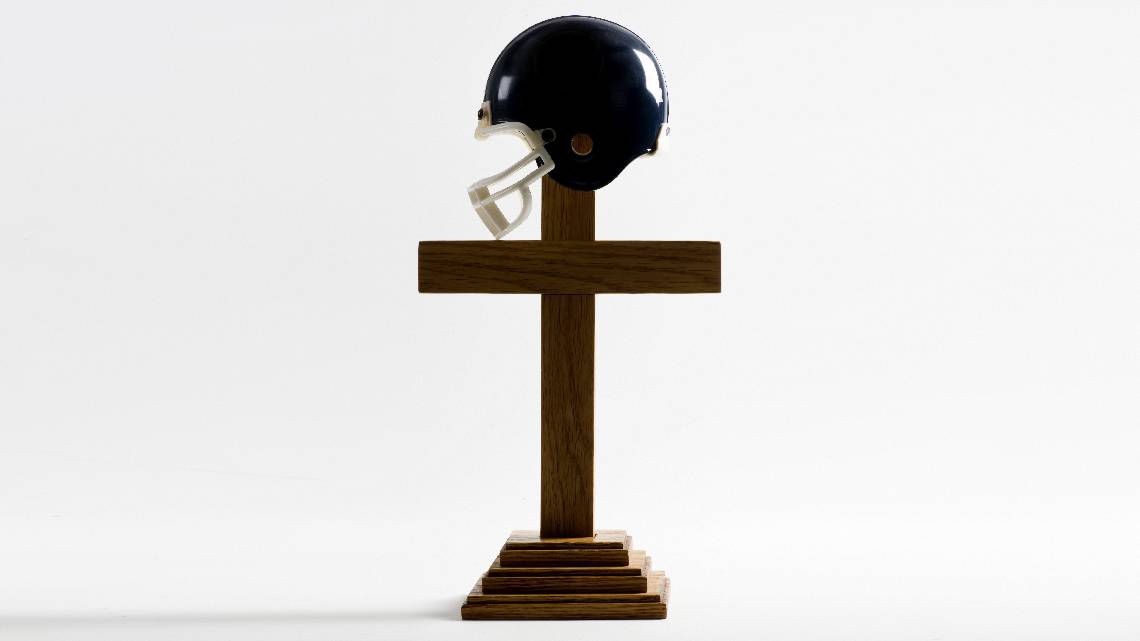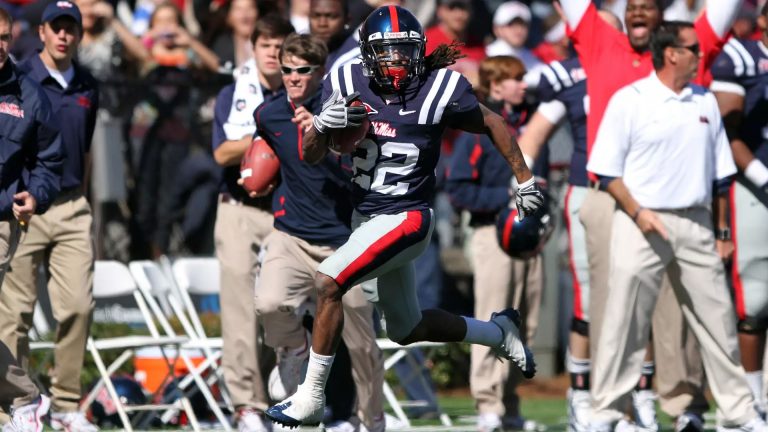
by Melvin Arrington
In Mississippi college football captures the imagination like no other sport. Recently, ESPN crowned Oxford the number one college town in the entire country, a ranking that owes much to the lure of The Grove, which commentators have for years been calling the “Holy Grail of tailgating.” This allusion to the sacred is justifiable because, as legendary Alcorn State coach Marino Casem once observed, “in the South, football is a religion, and Saturday is the high holy day.” Around here, as the SEC slogan states, “It just means more.”
Before a big SEC matchup, the mindset of some fans might be expressed this way: “the outcome of this game is not a matter of life and death; it’s more important than that.” It’s as if a win or a loss could determine our destiny in the afterlife.
Many of us still pray for a Rebel win, even though there’s no evidence God favors one team over another, unless you count the “Immaculate Deflection” in the 1983 Egg Bowl, played in Jackson. During the fourth quarter, the wind was blowing like a hurricane about to make landfall. At one point I heard the tornado warning siren go off. I must have been out of my mind to sit up in those stands in that kind of weather. As Mississippi State’s kicker attempted the game-winning field goal, I lost track of the ball when a strong gust caught it and shot it spinning upward into the darkness, only to send it harmlessly back down onto the playing field seconds later. That evening I told my Daddy that the wind gave Ole Miss the victory by pushing the ball backwards, but he said, “It was the hand of God.”

Because football and religion in the South are inseparably linked we need to ask ourselves: do we worship the gods of the gridiron more than the Almighty? Monday through Friday during the season Saturday’s match up is a topic of endless discussion. On the big day family and friends will spend 12–15 hours in The Grove and the stadium. Following Sunday church services, conversations inevitably turn to a recap of the key plays and coaching decisions. Is football more important than faith? Are we breaking the first Commandment? It’s definitely something to think about.
The Church has its liturgical seasons and holy days of obligation. Likewise, college football has its sacred time in the fall, followed by bowl games and national signing day in the winter. Then there’s spring practice. And let’s not forget recruiting, which goes on year round. There’s no end to football. Like the Church calendar, it just starts all over again.
In The Power of Myth, Joseph Campbell remarked that you could look at the architecture of a particular place at a specific moment in time and tell what principles were informing society, with the tallest building being the most obvious indicator of what a culture valued most. In Medieval times the largest edifices were cathedrals because faith played such an important role in the people’s lives. During subsequent centuries, huge palaces, symbolizing the ruler’s political power, came to dominate urban skylines. Not surprisingly, in our modern age the most imposing structures are skyscrapers dedicated to commerce and finance.
What’s the most grandiose structure on the Ole Miss campus? It’s clearly Vaught-Hemingway Stadium. The games played there generate big bucks not only for the university but also for the city of Oxford. And because of the “holy” nature of Saturdays in the fall, the Grove and the stadium become sacred precincts within which one can observe profane ritualistic behavior that to some degree mimics religious practices.
Like worshippers attending church services, ticket holders make their way up the ramp into the stadium, many of them dressed in their “Sunday best.” They come to watch the game, but they’re also there to witness specific rituals such as the band’s performance, the Alma Mater and national anthem, the coin toss, and the team’s entrance onto the field. And throughout the contest they profess their faith in their team with Creed-like responsorial chants such as “Hotty Toddy!” and “We are Ole Miss!” So, even football has it’s own liturgy.
Worship practices undergo modifications with the passage of time. The same holds true for sports traditions. The pregame prayer over the PA system is now a thing of the past, as are Colonel Reb, the Rebel flag, “Dixie,” and “From Dixie with Love.” Times change for better or worse. The rites of autumn evolve. But dogma is fixed and unalterable, so please don’t tamper with our uniforms! We should not have to guess which is our team! Pants should be gray, with a red and blue stripe down the side. And powder blue is for helmets, not jerseys. This is not hard.
Despite these and other breaks with the past, the almost religious fervor of the faithful remains as intense as ever. The end zone is Glory, the Promised Land. When the Rebels score a touchdown, the crowd erupts in what may be likened to charismatic shouts of joy. And because our arch-nemesis is always lurking somewhere on the schedule, spirit-filled cries of “GO TO HELL, LSU, GO TO HELL!” will ring out across the stadium, even when we’re playing some other opponent. Holy smoke!
Yes, the high holy days are almost here! And yes, it just means more to us.
ARE YOU READY?



